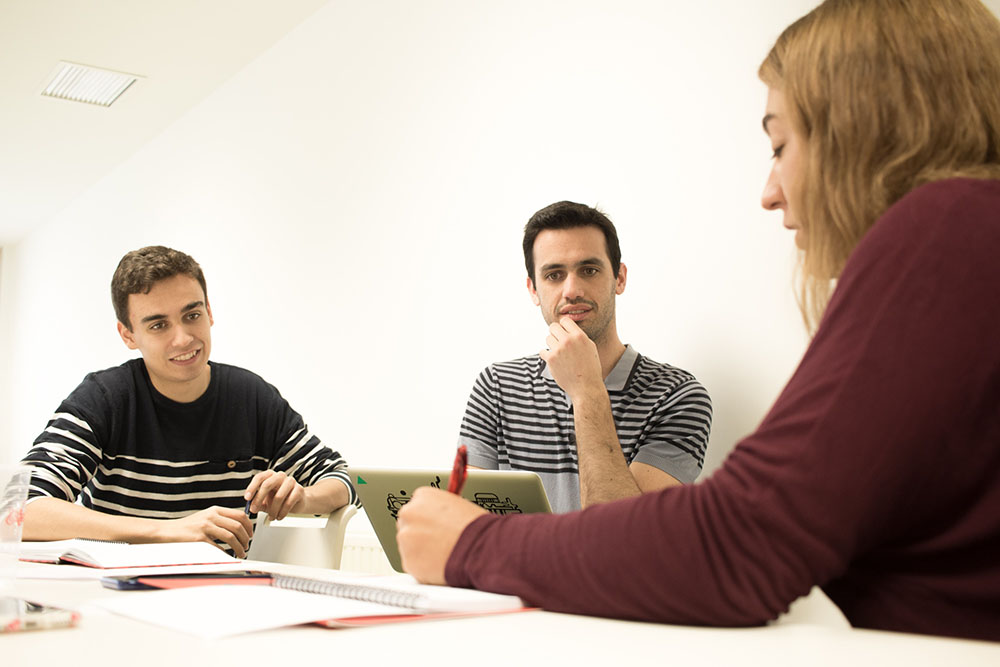
20 Feb ECOOPE carries out its pilot programme for Higher Education at co-operatives
The pilot training programme will start off with a one-week specialised training course at CISE (Santander International Entrepreneurship Centre) within the University of Cantabria, and will be followed by a one-month stay at different European co-operatives.
This initiative is part of the EU-confunded ECOOPE project, which fosters the generation of new business models based on social economy.
Santander, Feb 19 2018.– This week Santander International Entrepreneurship Centre (CISE) within the University of Cantabria (UC) is carrying out a pioneer training action related to entrepreneurship based on the co-operative business model, in which twelve young graduates and undergraduates from Italy, Portugal, Spain and United Kingdom will participate, having been selected out of over 80 applicants from different European countries.
This pilot programme is part of the ECOOPE project (European Experience of Cooperative Entrepreneurship), which last month carried out another training based on the co-operative business model and addressed to secondary education students from Spain and Portugal in Langreo, Asturias (Spain) and which now takes a further step with this initiative in Higher Education.
As well as promoting and raising awareness about social entrepreneurship amongst the European youth, this action will allow them to live with other participants from different backgrounds and university studies, creating synergies that will enrich their teamwork in order to solve actual challenges at co-operative companies.
Training and staying abroad
This pilot experience consists of two stages: first, an intensive one-week course at CISE that will introduce the co-operative business model to the participants, and will include innovative methodologies, such as out-of-the-box and design thinking, prototyping and lean start-up, among others.
The second stage will take place from February 26 to March 23, when the participants, organised in teams, will travel to one of these European co-operatives: Suma Wholefoods in West Yorkshire, UK (organic products), ADEGA Co-operativa de Mesao Frio in Douro (Portugal) (wines), Fundación Espriu (health sector) and Cooperativa de Enseñanza El Salvador (education) in Spain. There they will put into practice the knowledge acquired in Spain and to solve the challenges the co-operatives will pose.
Thanks to this experience abroad, participants will be able to analyse in depth the cooperative assigned to them and get familiar with its functioning, while identifying the areas of business where they can apply the ideas generated during the training week at CISE. Afterwards, they will have to build a prototype, validate it and present the final outcome to the co-operative, so that the company can implement the solution if they find it convenient.
Cooperation: a feasible option for future entrepreneurs
As a business model, co-operatives can be an appealing option for young people, since starting them up needs no great capital investment and liability is limited. Their setting up is based on the association of people who face common economic, social and cultural objectives and who share benefits equally.
In Europe, one in three people is a member at one of the existing 250,000 co-operatives employing over 5 million people in several industries.
About ECOOPE
The ECOOPE Project, co-financed by the European Union, has a budget of over €300,000 and was launched last May.
Its aim is to improve European Secondary and Higher Education students’ employability by providing them with the entrepreneurial knowledge and skills with the aim of creating cooperatives or, alternatively, incorporating their initiatives in already-existing co-ops.
Together with the University of Cantabria, CISE (Santander International Entrepreneurship Centre) and Valnalón in Spain, the following European institutions are part of the consortium: LUT Lappeenranta University of Technology (Finland), EURICSE (Italy), Porto University and PEEP (Portugal), and Co-operative College UK (United Kingdom).



No Comments